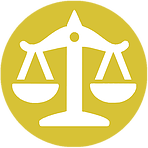- Home
- Secondary
- Subject Information
- RPE
RPE

RPE
Ms. Print
Religion, Philosophy and Ethics provides students with a broad experience of learning about the world’s great religions as well as exploring important cultural, moral and life issues.
Through RPE at Dartmouth Academy all students are given the opportunity to learn about identity, community and belief both within and beyond Dartmouth.
The subject plays a central role in student’s spiritual, moral, social and cultural development as well as helping to embed British Values and following the Rights Respecting Schools agenda. Christianity remains a core perspective throughout Years 7 to 11 to reflect the character of our local as well as national community. We also study aspects of the world’s major religions, humanism and non-belief within different units to allow pupils to develop respect for and understanding of different beliefs, worldviews and values.
We follow the three-cycle approach in years 7, 8 and 9 with mid-cycle and end of cycle assessments that test core knowledge, key vocab and key concepts. As well as knowledge- based tests, students will answer questions in extended writing form.
For year 7 a common curriculum is being developed that is being taught across ESW schools. Cycle 1 builds on learning from primary, as guided by the Devon-approved RE curriculum, by reviewing and embedding concepts of what religion is, what is truth and what do we mean by values? BVC is introduced here which will be a theme throughout KS3 learning – beliefs, values and citizenship. Cycle 2 focuses in on Sikhism, as one of the world’s major religions and its important role in the community. Cycle 3 is currently planned as spiritualism and symbolism.
Year 8 and 9 are following a Dartmouth Academy developed curriculum which, like the Devon Approved RPE curriculum, features a combination of a religion in depth with a theme- based approach which dips into different religions to allow a combination of depth and breadth. In cycle 1 in year 8 we introduce Western Philosophy with an exploration of the concept of freedom, free will and how philosophy can make you happier. Students grapple with philosophical questions such as: do we need God to help us make moral decisions? For cycle 2 pupils’ study contemporary world issues and questions such as: is peace possible, the environment and sustainability and gender roles. Two religions, Islam and Christianity, as well as non-religious views are explored and considered. For cycle 3, the religion in-depth is Buddhism with mostly a focus on Buddhist beliefs but also some Buddhist Practices.
Year 9 starts with Holocaust Studies in cycle 1. We explore and learn about the Jewish people and their faith before the Holocaust and anti-Semitism before the Nazis came to power in Germany. Links are made with contemporary examples of prejudice and discrimination and human rights. We explore the history of the Holocaust in stages and what happened after. Students learn that there are individuals and groups who deny the Holocaust even though this is a crime in many countries, and given advice on how to navigate the internet and refute conspiracy theories. Cycle 2 focuses on concepts of good and evil with exploration of contemporary issues such as what causes crime, reasons for punishment and differing attitudes to capital punishment. Students explore different views and attitudes from different religions with a particular focus on Christianity, Islam and Buddhism with non-religious views considered too. Cycle 3 is the study of a religion in-depth which is Islam with mostly a focus on Muslim beliefs but also some Muslim practices. Years 8 and 9 have studied Hinduism too, as a depth study in year 7.
At Key Stage 4 we teach one lesson a fortnight using a planned curriculum that explores contemporary issues around such subjects as abortion, medical ethics and care for the environment. Pupils also study a unit about living in a multi-faith society and the goodness of human beings.





